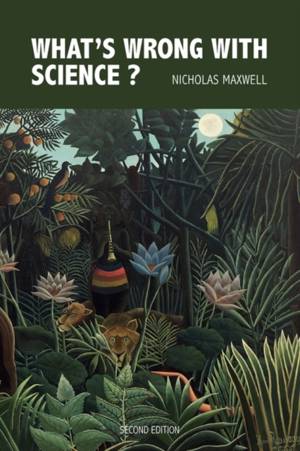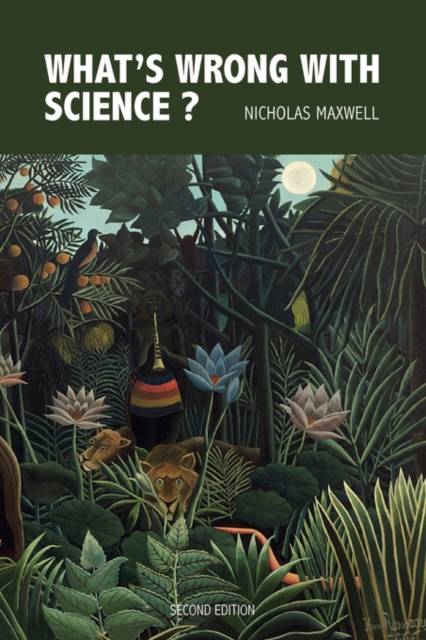
En raison d'une grêve chez bpost, votre commande pourrait être retardée. Vous avez besoin d’un livre rapidement ? Nos magasins vous accueillent à bras ouverts !
- Retrait gratuit dans votre magasin Club
- 7.000.000 titres dans notre catalogue
- Payer en toute sécurité
- Toujours un magasin près de chez vous
En raison de la grêve chez bpost, votre commande pourrait être retardée. Vous avez besoin d’un livre rapidement ? Nos magasins vous accueillent à bras ouverts !
- Retrait gratuit dans votre magasin Club
- 7.000.0000 titres dans notre catalogue
- Payer en toute sécurité
- Toujours un magasin près de chez vous
What's Wrong with Science? Towards a People's Rational Science of Delight and Compassion
Nicholas Maxwell
Livre broché | Anglais
17,45 €
+ 34 points
Description
What ought to be the aims of science? How can science best serve humanity? What would an ideal science be like, a science that is sensitively and humanely responsive to the needs, problems and aspirations of people? How ought the institutional enterprise of science to be related to the rest of society? What ought to be the relationship between science and art, thought and feeling, reason and desire, mind and heart? Should the social sciences model themselves on the natural sciences: or ought they to take a different form if they are to serve the interests of humanity objectively, sensitively and rigorously? Might it be possible to get into human life, into art, education, politics, industry, international affairs, and other domains of human activity, the same kind of progressive success that is found so strikingly, on the intellectual level, within science? These are some of the questions tackled by What's Wrong With Science? The author argues that a range of intellectual, technological, social, moral, educational and cultural problems associated with modern science are by-products of the widespread attempt to make science conform to a seriously inadequate ideal for science, an inadequate, widely upheld philosophy of science. The author puts forward and defends a new ideal for science, one which puts people, human life, at the centre of intellectual concern. Such a "person centred" science would be both more humanly desirable, and more rigorous and objective, than science as we have it today. The book is, however, no abstruse treatise on the philosophy of science. Most of it takes the form of a passionate debate between a Scientist and a Philosopher, a debate that is by turns humorous, ironical, bitter, dramatically explosive. Even as the argument explores the relationship between thought and feeling, reason and desire, the two main protagonists find it necessary to examine their own feelings and motivations. The book is a delight to read and can be understood by anyone. It should have a wide appeal. It will be of interest to any scientist concerned about the intellectual and moral integrity of modern science - whether working in a physical, biological or social science. It will be of interest to educationalists, science teachers, students, 6th form pupils, historians, sociologists and philosophers of science, and indeed to anyone concerned about the place and role of science and technology in the modern world.
Spécifications
Parties prenantes
- Auteur(s) :
- Editeur:
Contenu
- Nombre de pages :
- 274
- Langue:
- Anglais
Caractéristiques
- EAN:
- 9780955224010
- Date de parution :
- 01-09-09
- Format:
- Livre broché
- Format numérique:
- Trade paperback (VS)
- Dimensions :
- 152 mm x 229 mm
- Poids :
- 453 g

Les avis
Nous publions uniquement les avis qui respectent les conditions requises. Consultez nos conditions pour les avis.






